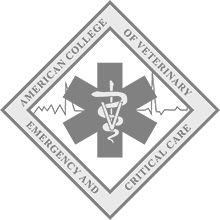Department
Emergency & Critical Care


The ICU doctors coordinate the care of critical pets with other specialties within our hospital because acute patients often have complex problems better tackled by a team of specialists. Any seriously ill pet usually needs intensive nursing care, including continuous monitoring of ECG, oxygen levels and blood pressure. The ICU doctors monitor the changing status of the critical patient and provide the diagnostics and treatments required to keep these patients alive.
This type of illness rarely gets better rapidly or smoothly. More commonly, the initial, acute period is followed by a longer period of recovery during which the body remains at risk of infections or relapse.
How do I know if my pet needs a specialty care veterinarian in Emergency and Critical Care?
Any pet that is seriously ill might benefit from this type of care. Animals that have sustained trauma or bite wounds are an obvious example, but there are many medical or surgical conditions that are treated in our ER.
Here are a few examples of the types of patients that benefit from care in an ICU under the supervision of specialists:
- Trauma patients, including those hit by cars or with bite, bullet, knife or burn injuries
- Any animal that is having trouble breathing
- Animals that may require blood or blood product transfusions (such as whole blood, plasma or albumin)
- Any patient that is in shock (signs of shock can include collapse, weakness, pale gums, cold extremities, and an abnormal heart rate)
- Animals that are having trouble urinating, or are not producing urine (such as animals that have a blockage and or may need peritoneal dialysis)
- Dogs and cats that need specialized nutritional support because they are unwilling or unable to eat on their own
- Animals in which an abnormal heart rhythm is causing problems like weakness or collapse
- Animals with life-threatening neurologic disease such as coma or severe seizures that are not responding to medications
- Patients that need major surgery, that have had surgery and are experiencing serious complications or are not recovering well from their anesthetic or are having trouble in the first few post-operative days

